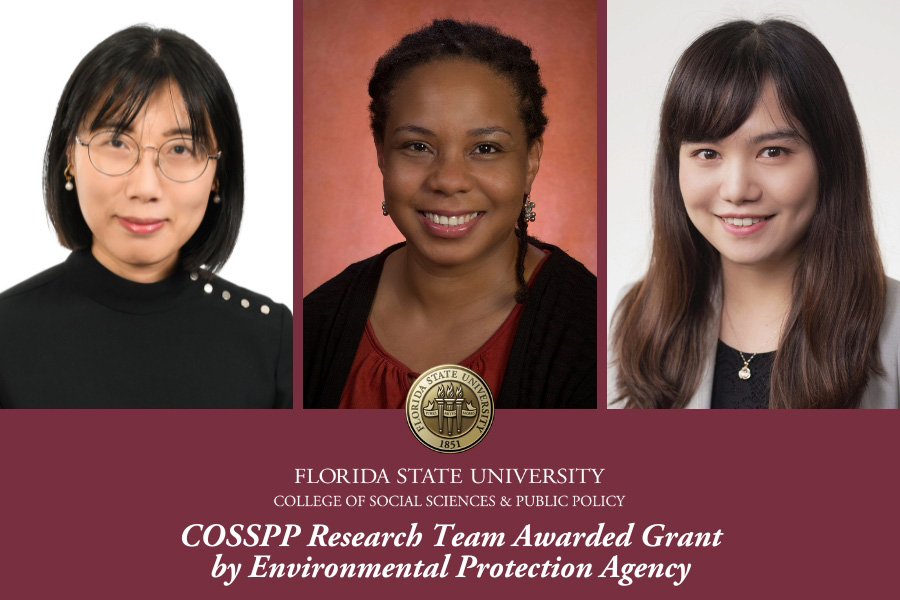
A Florida State University research team received a nearly quarter-million-dollar grant from the Environmental Protection Agency to help Southeast Florida advance local action on climate change mitigation and adaptation.
The team includes Department of Urban and Regional Planning Associate Professors Tisha Holmes and Kerry Fang and Askew School of Public Administration and Policy Associate Professor Tian Tang.
“This project offers us an opportunity to shape the future of the Southeast Florida region as one that is resilient, healthier, economically robust and fairer,” Fang said. “We will improve public health, bolster economic resilience and create high-quality jobs for low-income and disadvantaged communities — all while mitigating climate change.”
The team received $222,412 from Miami-Dade County through the Southeast Florida Climate Change Compact, a partnership between Broward, Miami-Dade, Monroe and Palm Beach counties. The compact is developing regional climate action plans with strategies to reduce greenhouse gas emissions in the region.
The research team’s role is to ensure that these strategies positively affect low-income and disadvantaged communities (LIDACs).
They will work with local governments and stakeholders to assess the potential impacts that greenhouse gas emissions measures have on the disadvantaged communities in Southeast Florida. These could include energy savings, reduction in air pollution, impacts on health and workforce development.
“The FSU team’s tasks are particularly important because the low-income and disadvantaged communities that are most vulnerable to climate change impacts have been left behind by many climate policies,” Tang shared.
These action plans cover 109 municipalities within the four counties and the Miccosukee and Seminole Tribal Government jurisdictions, a region of nearly 6.2 million people.
This project has three phases:
- Preliminary LIDAC Benefits Analysis: This phase maps LIDACs and identifies the benefits of GHG reduction measures for the LIDACs.
- Comprehensive LIDAC Benefits Analysis: Building on Phase I, this phase conducts a detailed assessment of the impacts of GHG reduction measures on co-pollutants, public health, economic benefits and environmental resilience.
- Workforce Planning Analysis: This phase examines labor shortages, assesses job impacts and identifies opportunities for creating high-quality jobs induced by the GHG reduction measures.
“I am impressed with this project’s ongoing commitment to extensive expert and stakeholder engagement as they develop a Climate Action Plan that is technically rigorous and responsive to the needs of LIDAC communities,” Holmes said. “Our work will support the development and eventual implementation of greenhouse gas reduction strategies that can enhance the health, environmental, social and economic well-being of communities who often bear the disproportionate burdens of climate change.”
For more information about the College of Social Sciences and Public Policy, visit coss.fsu.edu. To learn more about the Regional Greenhouse Gas Reduction Plan, visit southeastfloridaclimatecompact.org.



